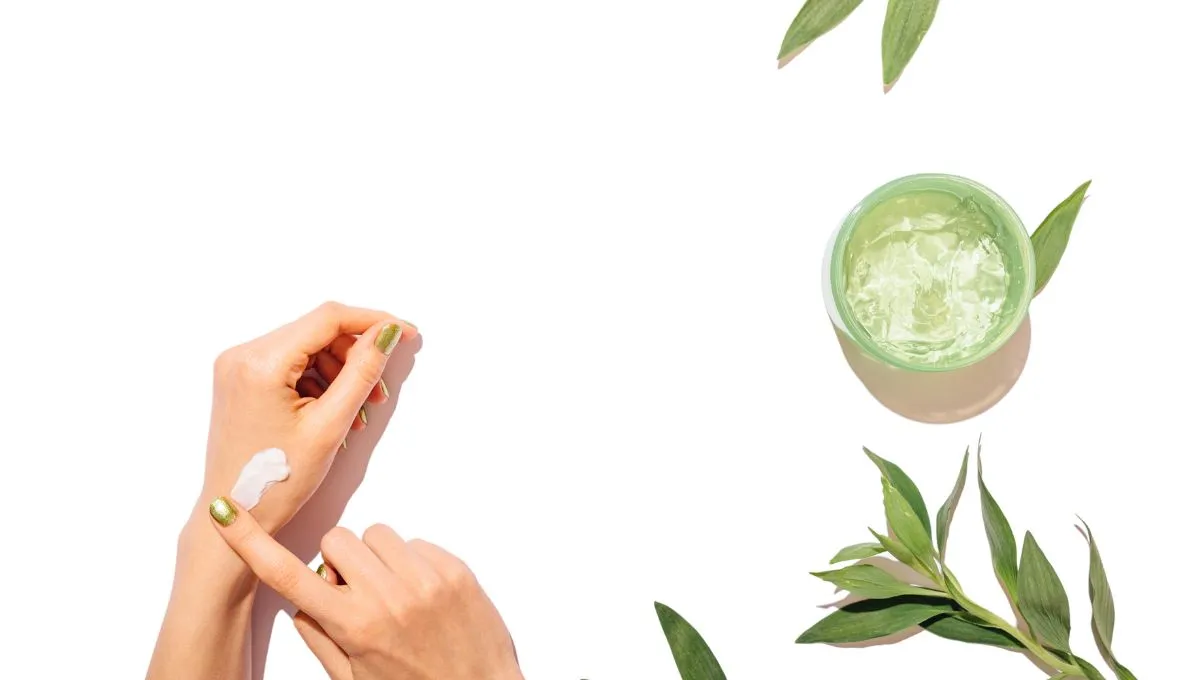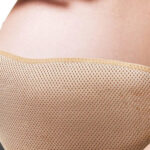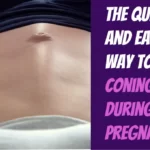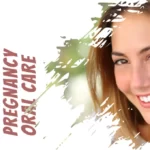
When my wife was pregnant with our first child, neither of us could have imagined the wild rash that suddenly appeared across her expanding belly. It began in the second trimester as a few sporadic itchy red bumps, but soon multiplied into a fiery, hive-covered terrain. She first noticed the angry splotches after our baby shower, when she indulged in sugary cake and received scented lotions as gifts. Little did we know, the combination of new products, hormones, and stress had triggered a case of pregnancy-induced hives.
My poor wife spent evenings slathering her bump in oatmeal baths and cold compresses to quell the inferno raging beneath her skin. Each day brought new welts and worries that our baby would be affected. The hives and accompanying itch tormented her mind and body until we finally discovered solutions. Now that we’re expecting again, we arm ourselves with knowledge on managing pregnancy hives. From recognizing triggers to treating symptoms, we’re determined to spare my wife (and my future child) from the trials we once endured. If you or a loved one suffer from this pimpled plague, I’m here to share our lessons learned. Read on to tame the beastly rash and regain comfort during such a special time.
Related: How to Get Relief from Pregnancy Rash?
What are Pregnancy-Induced Hives?
As an expectant dad who has gone through this with my wife, I know firsthand how uncomfortable and worrying pregnancy-induced hives can be. Hives, also known as urticaria, are red, itchy, raised welts on the skin that appear in clusters. They range in size from a few millimeters to the size of a dinner plate. Hives can occur anywhere on the body and are often triggered by an allergy or other factors like heat, stress, or pressure on the skin.
The reason pregnancy can cause hives is because of the hormonal changes taking place. Estrogen levels rise steadily during pregnancy, which can make women more susceptible to hives and other skin conditions. Progesterone also relaxes smooth muscle tissue and dilates blood vessels, which leads to increased circulation. This dilation allows inflammatory molecules to leak and accumulate under the skin more easily. Plus, increased blood volume during pregnancy leads to extra pressure on blood vessels, which can aggravate hives.
While hives affect up to 1 in 5 pregnant women, they tend to be more common during the third trimester when hormone levels are the highest. The good news is that pregnancy hives are temporary and usually clear up within a few weeks after delivery. But during pregnancy, they can be very uncomfortable and distressing. As an expectant dad, I learned quickly how to identify triggers, find the best treatment options, and support my wife through this challenging skin condition.
Related: Why Do Nipples Become Darker During Pregnancy
Common Triggers and Causes
As an expectant dad, I was surprised to see my wife break out in hives during her pregnancy. After doing some research, we realized there are many potential triggers that can cause hives for pregnant women.
Some of the most common culprits include:
- Hormonal changes – Pregnancy causes major fluctuations in hormones like estrogen and progesterone. These changes can make women more susceptible to histamine reactions and hives.
- Stress – Carrying a baby is both emotionally and physically stressful. High stress levels may worsen hive outbreaks.
- Hot showers or baths – The heat and steam can sometimes cause hives to appear during pregnancy. Warm water may dilate blood vessels and trigger hives.
- Foods and food additives – Pregnant women can develop new food allergies or intolerances. Common triggers include nuts, shellfish, eggs, soy, and msg.
- Infections – Yeast infections, UTIs, and other infections seem to increase the likelihood of breaking out in hives.
- Extremes in temperature – Sudden changes in temperature can sometimes provoke hives in pregnant women.
- Pressure or friction – Tight fitting clothes, bras, or belts may create friction that irritates the skin. This external irritation can result in hives.
- Sun and heat exposure – Heat rash triggered by sun exposure may look similar to hives. Staying cool helps prevent this.
Paying attention to any lifestyle changes, diet changes, skin irritants or infections can help identify what’s causing the hives during pregnancy. Keeping a symptom journal is useful for noticing patterns.
Related: Why I Am Experiencing Belly Button Pain Or Itching Or Soreness?
What’s the difference between pregnancy hives and a breakout?
| Aspect | Pregnancy Hives | Breakout (Acne) |
|---|---|---|
| Cause | Allergic reactions, hormonal changes, stress, environmental factors | Hormonal changes, stress, excess sebum production |
| Appearance | Small red bumps or large patches, very itchy | Red and irritated, may appear as pimples |
| Triggers | Allergens, stress, pressure on the skin, hormonal changes | Hormonal changes, stress, certain medications |
| Treatment | Antihistamines, avoiding triggers, topical treatments | Topical treatments, oral medications, lifestyle changes |
Related: Exploring Dietary Strategies to Alleviate Morning Sickness during Pregnancy
Where on the Body Do Hives Appear?
One of the most common places for pregnancy-induced hives to appear is on the belly. As the belly expands during pregnancy, the stretching skin can cause hives to form. The belly is constantly growing and changing shape, which can irritate the skin and trigger hives.
Hives also frequently occur on the legs during pregnancy. Like the belly, the legs often get bigger during pregnancy. The extra weight gained can lead to swelling and irritation that results in hives on the legs. The thighs, calves, and ankles are typical problem areas.
The arms are another common body part impacted by pregnancy hives. As blood volume increases during pregnancy, blood vessels dilate, often causing swelling in the arms. This can irritate the skin and cause hives to break out along the arms. The wrists, forearms, elbows and biceps are prone to hives.
In addition to the belly, legs and arms, some women may experience pregnancy hives on other areas like the back, chest, neck, face and scalp. The hives can appear anywhere, especially on skin that is stretched tight over a growing bump or areas that experience swelling. Having hives all over your body can be frustrating, but try not to scratch them as it can make them worse.
Related: Can You Eat Subway While Pregnant
Symptoms and Signs
As an expectant dad who has seen my wife deal with pregnancy-induced hives, I can tell you the symptoms are not pleasant. The main thing you’ll notice is itchy skin. The itching can range from mild to severe, and may be worse at night making it hard to sleep.
Along with the itchiness comes red, raised welts on the skin that can appear suddenly. It almost looks like you got bitten by a bunch of mosquitoes! The welts are called hives or wheals, and can range in size from a few millimeters to the size of a dinner plate.
The welts may first emerge on the abdomen, arms and legs, but can spread to other parts of the body as well. The hives tend to flare up and fade repeatedly over the course of pregnancy. While they don’t typically leave permanent scars, they can be incredibly uncomfortable and annoying while they last.
Some other signs that often accompany the hives include:
- Swelling, especially of the hands, feet, lips and eyelids
- A burning or stinging sensation in the affected skin
- Skin that is warm to the touch
- Anxiety and irritability from the incessant itching
The hives themselves are not dangerous to mom or baby, but the incredible itchiness can take an emotional toll. Having an supportive partner to help apply cold compresses, creams, or distractions can make a big difference!
Related: Is Zipline Safe for Pregnant Women
When Do Pregnancy Hives Occur?
Pregnancy hives can pop up at any time during pregnancy. However, they tend to be more common during the second and third trimesters when hormone levels are highest.
For some women, the hives first appear around weeks 24-28 of pregnancy. As the due date gets closer and estrogen and progesterone are at their peak, hives may worsen or continue to plague the last weeks of pregnancy.
Though less common, hives can occur in the first trimester as well. The hormonal fluctuations of early pregnancy can trigger hives in some women. Others may suddenly develop hives after having no prior history with them.
In summary, pregnancy hives can strike during any trimester. But the likelihood increases as hormone production ramps up through the second and third trimesters. Being aware of this pattern can help pregnant women know what to possibly expect. If hives develop early on or are severe, be sure to contact your doctor.
Related: Sex in Each Trimester of Pregnancy
Diagnosing Pregnancy Hives
Getting an accurate diagnosis of pregnancy hives is important. I scheduled an appointment with my doctor when the rash first appeared to ensure it was not a sign of something more serious.
The doctor asked about my symptoms and triggers and conducted a physical exam of the rash. She confirmed it looked like hives, but wanted to rule out other skin conditions.
She did some allergy testing by applying likely triggers to small areas of my skin to see if they caused a reaction. This helped identify what specific allergens were causing my hives so I could try to avoid them.
The doctor also took a blood sample to check for underlying conditions that could be contributing, like thyroid disorders. Fortunately, my results came back normal.
With the information from my appointment, my doctor definitively diagnosed that I had pregnancy-induced hives. Getting an evaluation provided me relief knowing exactly what I was dealing with so I could find the right treatment.
Related: How To Know If Menstrual Cup Is Inserted Correctly
Treatment Options for Pregnancy-Induced Hives
As an expecting dad who has seen my wife suffer from pregnancy hives, I learned there are several ways to treat this frustrating condition. The main treatment methods include:
- Antihistamines – Antihistamine medications like cetirizine (Zyrtec) or diphenhydramine (Benadryl) can provide relief from itching. These are generally considered safe during pregnancy when used as directed. The doctor may recommend taking antihistamines around the clock to control symptoms.
- Steroid Creams – Applying over-the-counter hydrocortisone cream to hives can reduce inflammation and itching. Make sure to ask the doctor first about using topical steroids.
- Avoid Triggers – It’s important to figure out what triggers the hives, like heat, sun exposure, or certain foods. Avoiding these triggers as much as possible will prevent flare ups. I wrote down everything my wife ate or did before an outbreak to try finding the source.
- Stay Cool – Heat and sweating tends to worsen itching for pregnant women with hives. Use fans, air conditioning, cool showers, and avoid getting overheated. Wear breathable loose clothing.
- Moisturize Skin – Keeping the skin hydrated with fragrance-free moisturizers can help combat itching and dryness.
The key is to work closely with the doctor to find the right treatment plan. Be patient, as it can take some trial and error to control pregnancy hives. But there are thankfully many ways to manage this annoying condition.
Related: Natural Home Remedies For Bleeding Gums During Pregnancy
Natural Remedies for Pregnancy-Induced Hives

Here are some natural remedies for pregnancy-induced hives:
- Applying cool compresses to the affected area
- Taking oatmeal baths
- Applying aloe vera gel
- Using essential oils such as lavender and chamomile
- Avoiding triggers that can cause hives, such as stress, certain foods, and exposure to allergens
- Keeping a diary of when hives occur and what activities or foods were consumed beforehand
- Rubbing garlic on the affected areas
- Showering with lukewarm water
- Complementing the food you are allergic to avoid the allergic reaction
- Ensuring that you are stress-free and practicing relaxation techniques to relieve the effects of hives.
Related: Seed Cycling Chart for Fertility: Natural Way to Balance Hormones
Tips for Preventing Pregnancy-Induced Hives
Here are some tips for preventing pregnancy-induced hives:
- Avoid Tight-Fitting Clothing: Wearing loose, cotton clothing can help prevent hives during pregnancy.
- Manage Stress: Stress can be a trigger for hives, so practicing relaxation techniques and avoiding stressful situations may help minimize the risk of hives.
- Avoid Hot Baths and Showers: Lowering the water temperature can help prevent hives during pregnancy.
- Keep a Diary of Potential Triggers: Keeping a record of potential triggers and discussing them with a healthcare provider can help prevent future outbreaks of hives.
- Identify and Avoid Allergens: Allergens can trigger hives, so identifying and avoiding them can help prevent hives during pregnancy.
- Use Natural Remedies: Some natural remedies, such as applying cool compresses, taking oatmeal baths, and using aloe vera gel, can help manage and prevent hives during pregnancy.
Related: 20 Most Breathtaking Natural Wonders You Must See to Believe
Coping with Discomfort
As a dad who watched my wife struggle with pregnancy-induced hives, I know firsthand how uncomfortable and distressing this condition can be. The intense itchiness and unsightly rashes take a huge toll, both physically and emotionally. While the hives will eventually subside after delivery, here are some tips for managing the symptoms in the meantime:
Tips for managing itchiness
- Use a cold compress or ice pack on itchy areas for temporary relief. Avoid scratching, as this can worsen and spread the rash.
- Apply creams containing menthol, camphor, or pramoxine to the affected area. The cooling sensation can temporarily relieve itch.
- Take lukewarm oatmeal baths, which can help soothe itchy skin. Add a cup of colloidal oatmeal to bath water.
- Wear loose, breathable clothing made of soft fabrics like cotton. Tight clothing can irritate the skin.
- Keep nails trimmed to avoid injuring the skin from scratching. Distract yourself with other activities.
- Try a humidifier, as dry air can worsen itching. Moisturize the skin regularly.
Tips for managing appearance concerns
- Use makeup to conceal visible rashes on the face, neck, and chest area. Ask your dermatologist for hypoallergenic, non-irritating brands.
- If hives appear on the hands or feet, lightweight gloves or socks can hide the rash.
- Wear long sleeves and pants to cover hives on the arms and legs when going out. Stick to loose, breathable fabrics.
- Use accessories like scarves, shawls or jewelry to distract from rashes on the neck, chest or wrist area.
- Remember, the hives are only temporary and will go away after delivery. Focus on keeping comfortable.
As expecting parents, the best thing we can do is arm ourselves with the right information and coping methods. Having an empathetic, supportive partner also makes a huge difference. The discomfort is difficult, but likely short-term. Stay positive and proactive during this challenging time. You’ve got this!
Related: Eating Dates For Natural Induction
When to Seek Emergency Care
As uncomfortable as pregnancy hives may be, they are typically not dangerous for mom or baby. However, in rare cases, they may be a sign of an allergic reaction or condition that requires emergency care.
Seek immediate medical attention if you experience any of the following signs of a severe allergic reaction (anaphylaxis):
- Difficulty breathing or shortness of breath
- Swelling of the lips, tongue, throat or face
- Wheezing or coughing
- Rapid heart rate
- Lightheadedness or dizziness
- Confusion
- Turning blue
- Loss of consciousness
Anaphylaxis is a life-threatening reaction that requires an epinephrine injection and emergency medical treatment. If you suspect you may be having a severe allergic reaction to a food, medication, or other trigger, call 911 or go to the nearest emergency room right away.
It’s better to seek help when uncertain rather than wait – anaphylaxis can begin mild but rapidly progress to be fatal if untreated. Don’t take chances with any symptoms that seem unusual or severe. Getting prompt emergency care can prevent serious complications for both you and your baby.
Related: What Are The Natural Cures For Female Dryness?
Frequently Asked Questions (FAQs)
Can hives be caused by pregnancy?
Yes, hives can be caused by pregnancy. Hives during pregnancy are typically caused by allergic reactions to food, insect bites, medicine, chemicals, or other environmental factors. The dryness and stretching of the skin, along with other changes, can make pregnant women more susceptible to experiencing hives.












